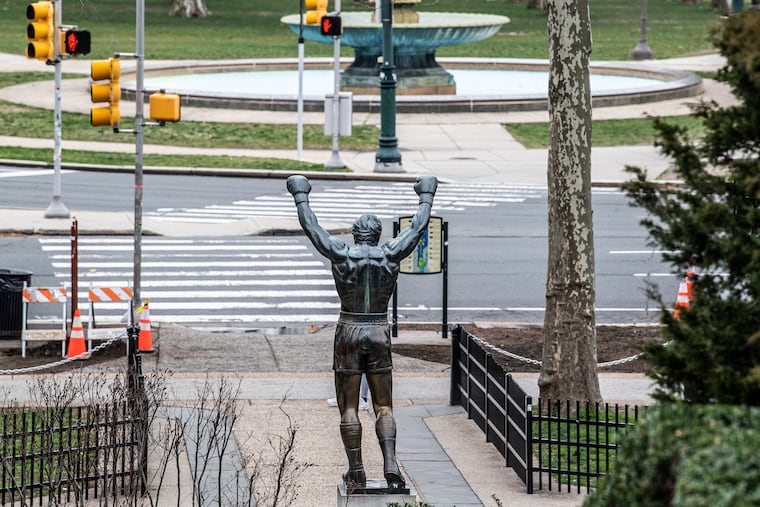Life under coronavirus demands the quiet strength to go on | Albert Eisenberg
I have prayed online, exercised at home, and taken runs through our beautiful neighborhoods. I have also overslept, felt the gnaw of depression, and the anxiety of having no “things to do."

If somebody had told me at the end of February that I would be getting on well after a month of quarantine, I would have been surprised.
A part of me — the part that doubts myself, and questions my ability to overcome — is surprised that I have been able to handle this isolation, this halt in my life and hit to my consulting business. The part of me that knows people have managed to get on in dire circumstances throughout history — and considers that resilience to be fundamental to human nature — is not.
I believe that people are strong when they are asked to be. I worry about those in our society — particularly in my peer group — who have grown up with the message that society needs to serve them, and not the other way around. This breeds thin skins and an inability to adapt and hurts the people who carry this perspective the most.
Nothing about the coronavirus is fair. Then again, neither is the world. Amid the inequity, and this keen reminder of nature’s power over man, we do have a choice: Abide by the quarantine rules, or flout them. Act with dignity, or throw a fit. Keep our chins up, or wallow on our couches.
Where I can, I have tried to make this experience — this month under quarantine — if not uplifting, then at least strengthening.
» FAQ: Your coronavirus questions, answered.
In the past few weeks, I have lost and regained business, reconnected with friends, played with my cat, opened up books that had gathered dust on the shelf, sprung loose an art project that had been relegated to the back of my closet since I graduated college, and made approximately four dozen varieties of quiche (which will be transitioned to frittatas for Passover).
» READ MORE: Coronavirus anxiety is all around. ‘Don’t oversaturate yourself,' Philly experts advise.
I have prayed online with a Jewish “congregation.” I have exercised at home, something I am normally loath to do, and have taken rambling runs through the Riverwards, ducking baby strollers and teenagers while admiring the beauty of our neighborhoods.
I have also overslept. I have felt the gnaw of depression and understimulation, sensed the heat of anxiety as I’ve run out of “things to do,” opened up Twitter on my phone, only to immediately realize that I have it launched on my laptop. And I have begun a particularly noxious habit of eating an entire bag of pita chips at 2:30 in the morning.
So, it has not been all wine and roses for me, and I am not a self-help guru or an eternally sunny person, as anybody who knows (or reads!) me understands. I do not intend to laud myself, and what I have gone through so far — this cessation of activity — has caused no permanent damage to me personally, luckily so far.
So I have tried to accept this great upheaval. Because truly, for a responsible adult in control of his own life, there is no choice but to do the best we can with the hand we are dealt. In that sense, life under quarantine is not altogether dissimilar from life in general.
You do not need to be a hero — or be lauded as such — to live with dignity.
This might be the contemporary version of the great British exhortation to “keep calm and carry on,” aimed not at the first responders or soldiers, but at the everyday person living under the duress of WWII. Today’s quarantine might be the closest thing to a Great Depression or epidemic that my generation, arguably the most comfortable in history, will ever experience.
When I consider my situation, impacted though it is by this coronavirus, I find myself extremely lucky — both relative to some neighbors, and in the scope of human history. America today has the tools and means to prevent a catastrophic plague that could have otherwise killed millions.
» READ MORE: Social distancing can strain mental health. Here’s how you can protect yourself.
The present situation was not asked for, but it can be accepted and dealt with. Maybe, in doing so, we will realize that we are stronger than we thought — as individuals, and hopefully, as a society and a nation.
We will all look back and remember this. I hope that when we do so, what will stick out is the quiet strength of our days under quarantine — when we got on because we had to.